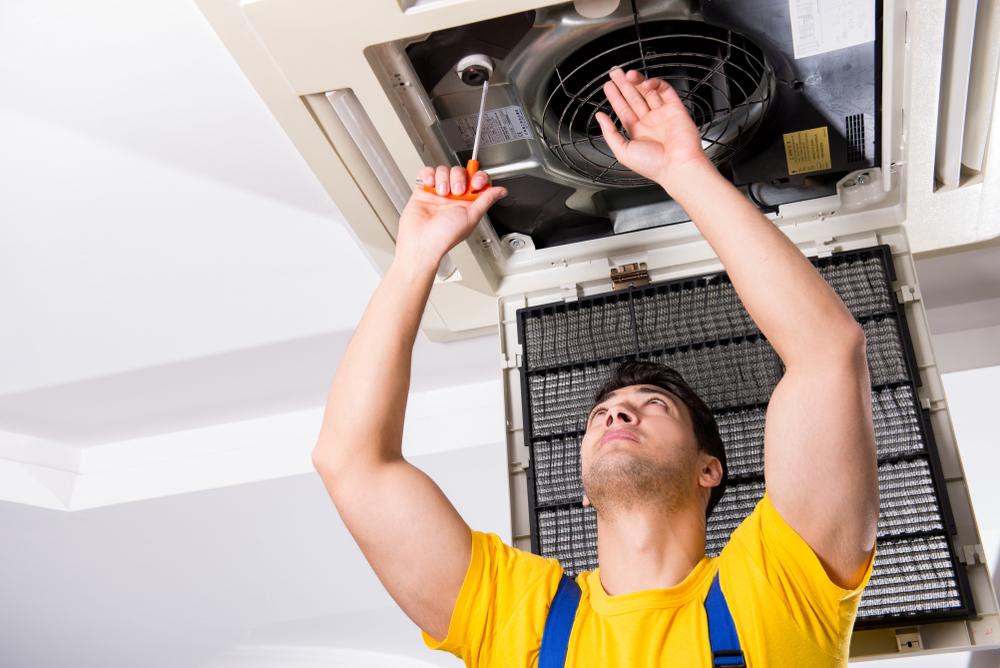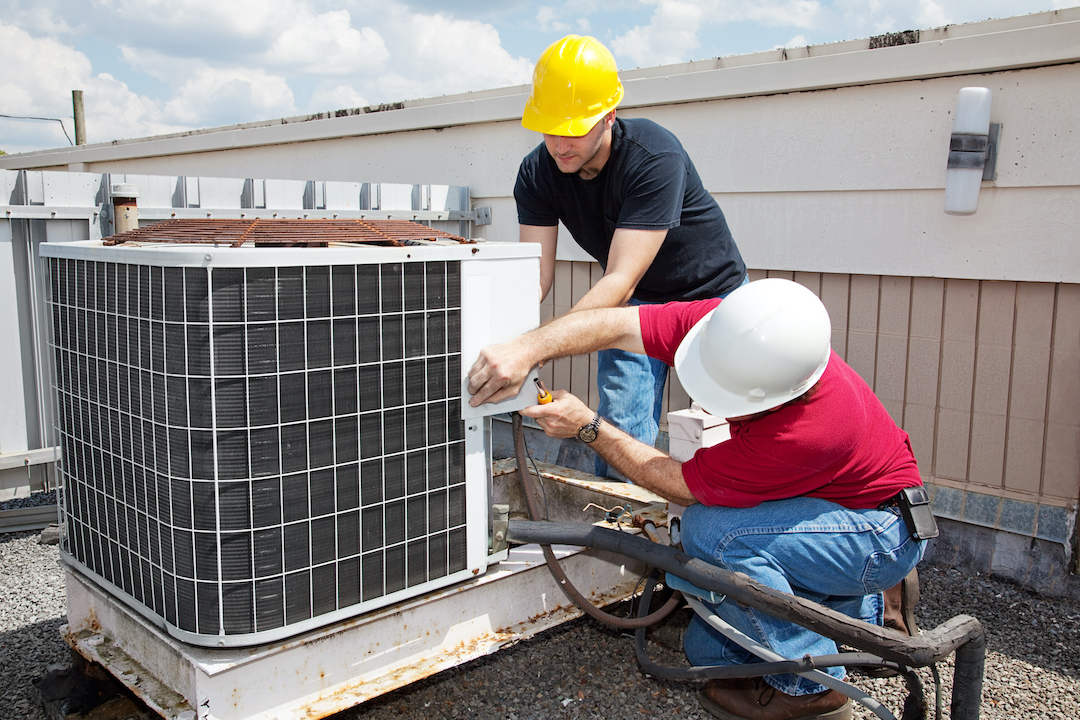Advice from Technicians on heat pump installation ooltewah tn
Advice from Technicians on heat pump installation ooltewah tn
Blog Article
Picking In Between a Heatpump and Furnace: Trick Considerations for Your HVAC Demands
When reviewing home heating choices for cooling and heating requires, the choice between a heatpump and a furnace can be complicated. Each system supplies distinctive benefits tailored to particular climates and power efficiency goals. Recognizing these differences is crucial for making an enlightened choice. Trick variables such as installation costs and environmental influence additionally make complex the selection procedure. Which option truly aligns with one's comfort and sustainability choices? The adhering to sections will certainly explore these considerations in information.
Understanding Heat Pumps: How They Function and Their Benefits
While numerous property owners take into consideration different heating alternatives, recognizing just how heatpump function and their advantages can greatly influence their decision. Heatpump run by transferring warm instead of producing it. In the winter months, they remove warm from the outside air or ground and transfer it inside your home, while in the summertime, they reverse this process, cooling the home by expelling warm outside. This dual performance makes them flexible for year-round climate control.One of the key benefits of warm pumps is their energy performance. They use significantly less electrical energy contrasted to typical furnace, potentially causing reduced utility expenses (furnace replacement). Furthermore, warm pumps have a smaller carbon impact, making them an eco-friendly choice. They likewise call for much less maintenance than standard systems, adding to long-term cost savings. Generally, recognizing the mechanics and benefits of heatpump can aid property owners make informed choices regarding their home heating and cooling requirements
Discovering Heaters: Kinds, Procedure, and Advantages
Heating systems are available in different kinds, consisting of gas, electrical, and oil versions, each with distinct functional mechanisms. Comprehending these distinctions is necessary, as they affect efficiency and home heating performance. Additionally, furnaces use countless benefits, such as constant warm outcome and dependability in cooler climates.
Kinds of Heating systems
Heater can differ significantly in style and operation, with heating systems being a popular selection amongst home owners. There are numerous kinds of heating systems, each utilizing various fuel resources and modern technologies. Gas heaters are usual, leveraging natural gas to create heat successfully. Electric heaters, on the various other hand, use electrical resistance to produce warmth, typically favored for their straightforward setup. Oil heating systems, while less usual, are efficient in areas with minimal gas accessibility (heat pump replacement ooltewah tn). Furthermore, condensing heaters optimize power effectiveness by reusing and recording exhaust gases. Each type runs through a system of heat exchangers and ductwork to disperse cozy air throughout a home. Understanding the differences between these heater kinds is important for informed HVAC decisions
Advantages of Heaters
For property owners seeking reputable warmth during chilly months, the advantages of heating systems are considerable. Furnaces give constant heating, guaranteeing even temperature levels throughout the home. They are particularly reliable in severe cold, often surpassing heatpump in icy conditions. Different types, consisting of gas, electrical, and oil heaters, use versatility to meet varied demands and preferences.Furnaces likewise tend to have lower first installment prices compared to heat pumps, making them a more available choice for several. Their robust style contributes to a much longer life-span, with several devices lasting over 15 years with appropriate maintenance. Furthermore, contemporary furnaces are commonly equipped with advanced innovation for boosted performance, which can cause lowered power expenses. Generally, heating systems continue to be a dependable option for efficient home heating.

Energy Effectiveness: Comparing Heat Pumps and Furnaces
When comparing energy effectiveness between warmth pumps and furnaces, the Seasonal Power Effectiveness Ratio (SEER) plays a crucial role in figuring out performance. Additionally, a functional cost analysis exposes the lasting economic ramifications of each system. Comprehending these elements can lead home owners in making informed decisions regarding their heating remedies.
Seasonal Power Performance Ratio
Power effectiveness plays a crucial duty in the decision-making procedure in between warm pumps and furnaces, particularly when considering the Seasonal Energy Performance Ratio (SEER) This metric measures the cooling effectiveness of warm pumps over a whole cooling period, offering a standard method to evaluate efficiency. Greater SEER scores show better power effectiveness, converting to lower energy usage and reduced energy expenses. On the other hand, heaters are typically analyzed utilizing the Yearly Gas Usage Efficiency (AFUE) ranking, which reflects heating performance. When contrasting these two systems, house owners should focus on SEER scores for heatpump, as they straight effect general energy savings and environmental sustainability. A comprehensive understanding of SEER can significantly influence the lasting complete satisfaction and cost-effectiveness of the picked cooling and heating remedy.
Operational Expense Analysis
Understanding the functional expenses associated with heat pumps and heating systems is essential for house owners examining their options. Heatpump typically provide higher energy efficiency, converting electrical power into heat with minimal waste. This leads to reduced monthly utility costs, particularly in modest climates. On the other hand, traditional heating systems, specifically gas versions, might have reduced in advance expenses however can incur higher functional expenses over time as a result of sustain prices and effectiveness ratings.Moreover, warmth pumps can operate as both heating and cooling down systems, possibly decreasing the need for separate heating and cooling systems. While initial investments for heatpump may be greater, their lasting savings in power efficiency can Read Full Report make them a much more affordable selection for numerous homes. Cautious analysis of regional energy prices is necessary to identify the best choice.
Setup Prices: What to Anticipate for Each Furnace
Setup expenses for furnace can differ considerably in between warmth pumps and furnaces, influencing homeowners' decisions. Warmth pumps usually have higher ahead of time installation prices, typically varying from $3,500 to $8,000, depending upon the device dimension and intricacy of installation. This consists of the outdoor unit, interior handling system, and essential ductwork modifications. Conversely, furnaces often tend to have reduced first expenses, balancing in between $2,500 and $6,000, which can be appealing for budget-conscious home owners. Installation costs can raise if substantial ductwork is required.Moreover, the selection of gas kind for furnaces-- natural gas, gas, or electrical-- can also affect setup costs. While warm pumps offer power efficiency, their initial financial investment may hinder some customers. Ultimately, evaluating installment expenses together with lasting savings and performance will certainly assist home owners in making notified decisions regarding their furnace.
Environment Factors To Consider: Which System Executes Much Better in Your Location
Just how do climate problems influence the effectiveness of heating unit? The performance of warm pumps and heaters can differ greatly depending on the neighborhood climate. In moderate climates, warmth pumps stand out by successfully transferring warm from the outside air, making them an energy-saving option. Nonetheless, their performance diminishes in very cool temperatures, where they might struggle to extract sufficient heat. On the other hand, heaters, specifically gas versions, supply reputable and constant warmth regardless of outdoor conditions, making them more effective in chillier regions.In locations that experience milder winters months, warmth pumps can operate properly year-round, giving both cooling and heating. On the other hand, areas with extreme wintertimes frequently gain from the effectiveness of furnaces. Eventually, understanding the local environment is crucial when choosing between a heat pump and a heater, as it straight influences their operational efficiency and total performance.
Upkeep Requirements: Long-Term Look After Warmth Pumps vs. Furnaces
While both warmth pumps and furnaces need normal upkeep to guarantee peak efficiency, their specific needs and care regimens vary significantly. Heaters commonly need much less frequent interest, with yearly evaluations sufficing to look for gas leakages, tidy filters, and examine overall capability. Their simpler layout frequently permits for simple repairs.In contrast, heatpump read more demand semiannual upkeep because of their twin role in cooling and heating. This includes cleansing coils, checking refrigerant degrees, and guaranteeing that both the interior and outside devices function at their ideal. In addition, heatpump upkeep commonly includes even more intricate elements, making expert servicing essential.Neglecting maintenance can lead to decreased effectiveness and increased power costs for both systems. Eventually, homeowners should consider these lasting treatment needs when choosing between a heatpump and a heater, as positive maintenance can prolong the life-span and efficiency of either system significantly.
Environmental Effect: Picking a Sustainable Heating Choice
The ecological effect of home heating systems is an essential examination for home owners seeking sustainable choices. Warm pumps are typically much more energy-efficient than traditional heaters, as they move warmth instead of generate it, considerably minimizing carbon exhausts. By making use of sustainable power sources, such as air-source or geothermal heatpump, homeowners can better decrease their eco-friendly footprint.On the various other hand, natural gas heaters give off greenhouse gases and add to air pollution, though they often supply greater warmth output. However, innovations in innovation have brought about the development of high-efficiency furnaces that minimize emissions.Ultimately, choosing a heater involves considering efficiency against environmental impact. Home owners are urged to assess regional power resources and incentives for eco-friendly systems, ensuring a choice that aligns with both individual comfort and ecological obligation. The choice impacts not only prompt comfort however also long-term sustainability and ecological wellness.
Regularly Asked Questions
The Length Of Time Do Warm Pumps and Furnaces Generally Last?
The life expectancy of warmth pumps commonly ranges from 15 to 20 years, while heaters can last between 15 to thirty years. Normal maintenance considerably impacts their durability and effectiveness in offering home heating services.
Can I Utilize a Heat Pump in Incredibly Cold Climates?
Heatpump can run in very cold environments, however their performance diminishes as temperature levels decrease. In such conditions, additional home heating sources might be necessary to maintain comfortable indoor temperatures and assure peak efficiency.

What Is the Sound Degree of Heat Pumps Versus Furnaces?
The noise levels of heat pumps and heaters differ significantly. Typically, heatpump operate more quietly than traditional furnaces, making them more suitable for those sensitive to sound, while heating systems might produce louder operational sounds throughout home heating cycles.
Are Warmth Pumps Suitable for Both Heating & Cooling?
Heatpump are without a doubt suitable for both heating and cooling (furnace replacement). They operate by moving heat, offering effective temperature control year-round, making them a flexible selection for house owners seeking an all-in-one heating and cooling remedy
What Dimension Heating System Do I Need for My Home?
Figuring out the appropriate dimension furnace for a home needs assessing aspects such as square footage, insulation high quality, regional climate, and the home's layout. Consulting a specialist can ensure an exact analysis and excellent convenience. Warmth pumps normally use greater power efficiency, converting electrical energy right into warm with marginal waste. In modest environments, warm pumps succeed by efficiently transferring heat from the outdoors air, making them an energy-saving alternative. Conversely, heating systems, especially gas models, offer regular and reliable warmth regardless of exterior problems, making them preferable in cooler regions.In locations that experience milder winter seasons, heat pumps can operate effectively year-round, supplying both heating and cooling. Warmth pumps are usually extra energy-efficient than conventional heating systems, as they transfer warmth instead than create it, significantly lowering carbon exhausts. By using renewable power sources, here are the findings such as air-source or geothermal heat pumps, property owners can additionally lessen their environmental footprint.On the other hand, natural gas heating systems produce greenhouse gases and contribute to air pollution, though they commonly provide higher warmth outcome.
Report this page